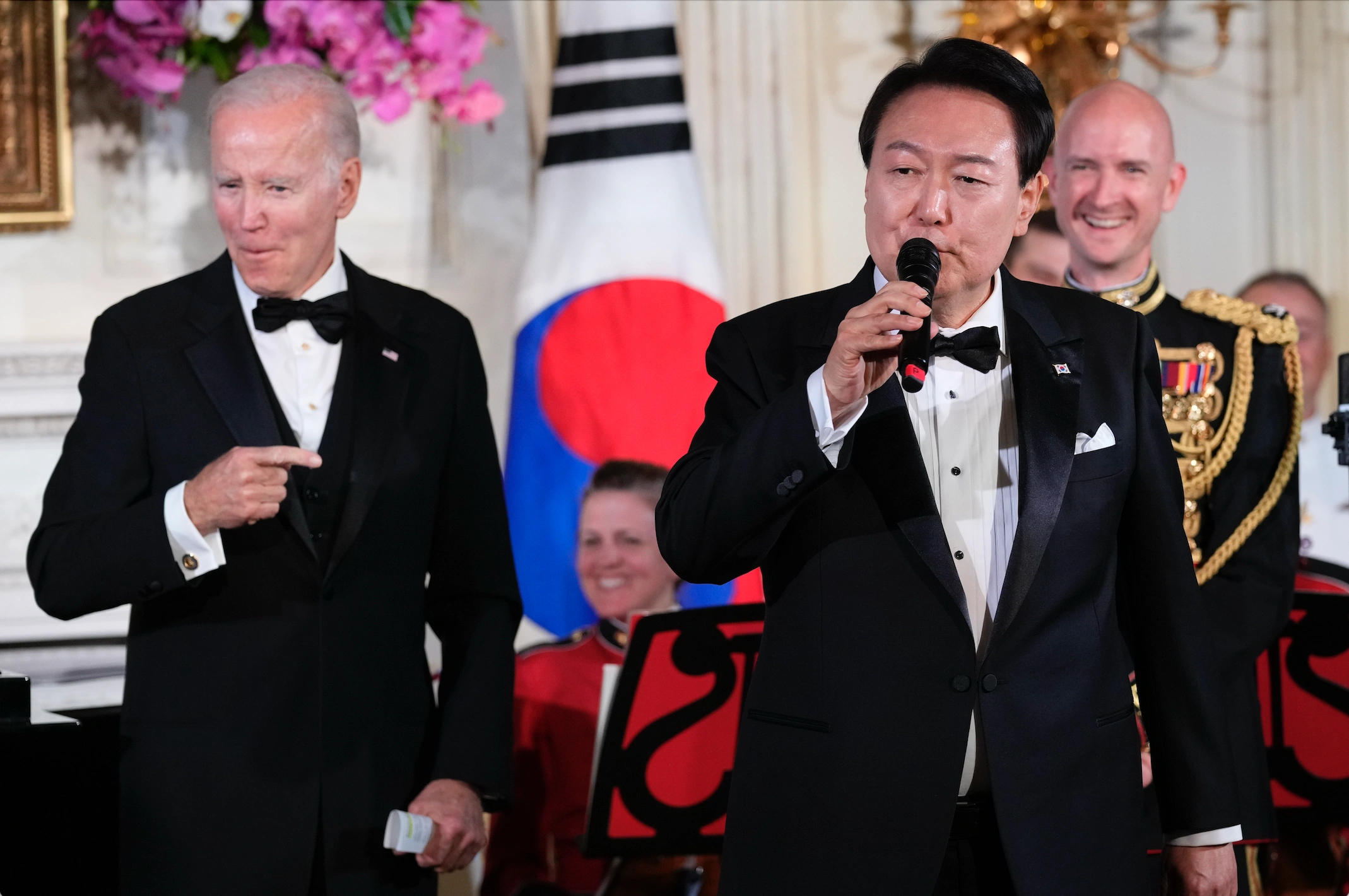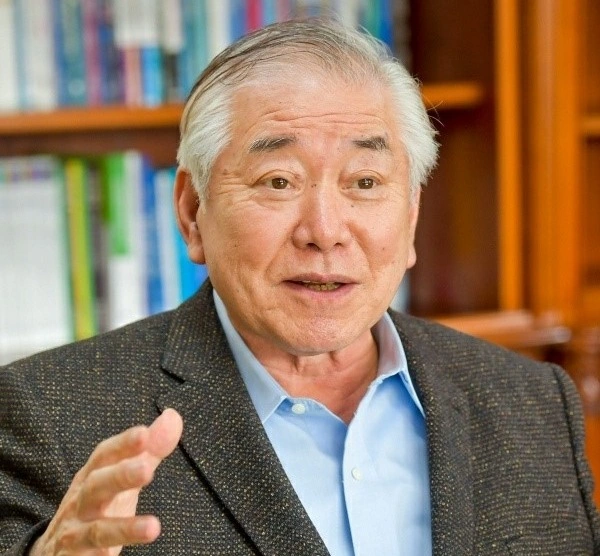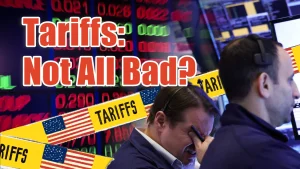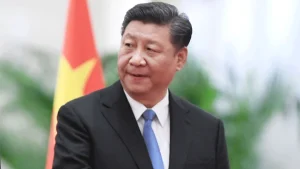Yoon Suk-yeol Shattered the Beacon of Democracy of South Korea
The dizzying and chaotic actions of the current president have left me not only feeling disoriented but also enraged. On December 3rd, he declared a state of emergency martial law, only to lift it shortly after and apologize to the public. Then, on December 12th, he claimed that the martial law was a “highly strategic governance act” and declared that he would “fight until the end.” This “tragicomic” circus ultimately ended with the passing of the impeachment motion in the National Assembly. Reflecting on his actions during his suspension from office, it seems that justice has prevailed.
First and foremost, he was an ‘undisciplined’ president. By ‘undisciplined,’ I mean behavior that goes against principles, ethics, and values. He had long touted liberal democracy and international solidarity as his trademarks, but in reality, he became an enemy of liberal democracy. Under the pretext of “defending liberal democracy from the threat of anti-state forces trying to overthrow the South Korean system,” he declared martial law and attempted to destroy the democratic constitutional order.
Under liberal democracy, the state is merely a neutral vessel reflecting the interests and preferences of its citizens, who are individuals. Moreover, the president is a representative and servant of the people. However, Yoon Suk-yeol rushed to make himself the master, identifying himself with the state and labeling those who opposed him as anti-state forces. This is the height of lawlessness. The impeachment of the president by the large opposition party, legislative overreach, and budget manipulation, which Yoon condemns, are common occurrences in advanced democracies. To declare a state of emergency and suppress opposing forces under these circumstances is an act that abandons the fundamental principles of liberal democracy.
 The Biden administration was caught off guard by Yoon’s declaration of martial law.
The Biden administration was caught off guard by Yoon’s declaration of martial law.
Secondly, Yoon Suk-yeol was a ‘lawless’ president. Even though the conditions for declaring martial law — war or rebellion — were not met, he went ahead with the declaration. Furthermore, he deployed the military to neutralize the constitutional authority of the National Assembly and attempted to seize information from the constitutional body, the National Election Commission, by infiltrating its offices and servers. These were clear illegal and unconstitutional acts. Including the Speaker of the National Assembly, leaders of both ruling and opposition parties, critical politicians, journalists, former Supreme Court justices, and sitting judges who had acquitted opposition leaders among those to be arrested alongside the martial law declaration constitutes a severe violation of the rule of law and the constitutional principle of the separation of powers. His actions, as a former prosecutor general and legal professional, are truly inexplicable.
Under liberal democracy, the state is merely a neutral vessel reflecting the interests and preferences of its citizens, who are individuals. Moreover, the president is a representative and servant of the people. However, Yoon Suk-yeol rushed to make himself the master, identifying himself with the state and labeling those who opposed him as anti-state forces. This is the height of lawlessness. The impeachment of the president by the large opposition party, legislative overreach, and budget manipulation, which Yoon condemns, are common occurrences in advanced democracies. To declare a state of emergency and suppress opposing forces under these circumstances is an act that abandons the fundamental principles of liberal democracy.
Secondly, Yoon Suk-yeol was a ‘lawless’ president. Even though the conditions for declaring martial law — war or rebellion — were not met, he went ahead with the declaration. Furthermore, he deployed the military to neutralize the constitutional authority of the National Assembly and attempted to seize information from the constitutional body, the National Election Commission, by infiltrating its offices and servers. These were clear illegal and unconstitutional acts. Including the Speaker of the National Assembly, leaders of both ruling and opposition parties, critical politicians, journalists, former Supreme Court justices, and sitting judges who had acquitted opposition leaders among those to be arrested alongside the martial law declaration constitutes a severe violation of the rule of law and the constitutional principle of the separation of powers. His actions, as a former prosecutor general and legal professional, are truly inexplicable.
Third, he was an ‘ignorant’ president. He lacked objective facts on policy issues and was accustomed to believing and spreading fake news. This was most clearly revealed in his fourth speech. His claim that the military mobilized to the National Assembly was small turned out to be false. He also made the erroneous claim that the special budget for the National Assembly had increased, despite it having been reduced for years, and he falsely asserted that the budget for supporting the export of Czech nuclear plants had been cut by 90%. His statement that the reduction in reserve funds made disaster response difficult was also untrue, as was his claim that child care allowances had been unilaterally cut.
Yoon Suk-yeol defended the declaration of martial law by claiming it was a “warning martial law” meant to alert the public about the anti-state misdeeds of the large opposition party and to stop them. However, the evidence contradicting this claim is overwhelming. In his fourth address, he insisted, “I told them not to block the National Assembly,” but after declaring martial law, he called the police commissioner six times and directly ordered, “Arrest them all. They are violating martial law, so arrest them.” His claim that “the national administration was paralyzed and social order disrupted due to the tyranny and violence of the opposition’s legislative dictatorship, making it impossible to carry out normal administrative and judicial functions,” along with his warning that South Korea would turn into a “paradise for spies, a drug den, and a gangster nation,” were nothing more than baseless, provocative fake news.
Finally, he was an ‘incompetent’ president. This means he had zero political skill and execution ability. Politics is the art of turning the impossible into the possible, but he has practiced a subtractive politics, making even possible things impossible. Accustomed to the hierarchical order and top-down command structure of the prosecution, he had no appreciation for the virtues of listening, nor any ability to mediate or resolve conflicts. He seemed more comfortable with authoritarianism than democracy. His execution capabilities were also severely lacking. In this martial law crisis, didn’t he demonstrate a clear failure in command and control? He turned competent personnel in the military and police into accomplices in treason, leading them down a path of ruin. How dangerous is it to entrust a country to such a leader?
In 2016, during the impeachment of President Park Geun-hye, the term hon-yong-mu-do (昏庸無道) became popular. It describes a foolish and weak ruler whose misrule causes chaos in the world, making proper governance impossible. However, with Yoon Suk-yeol, we seem to have a combination of both a foolish ruler (hon-gun) and a tyrannical ruler (pok-gun). The passing of the impeachment motion in the National Assembly is a fortunate event. Now, let us watch closely as the Constitutional Court determines the fate of the treasonous leader.
Editor: Catherine Yang



